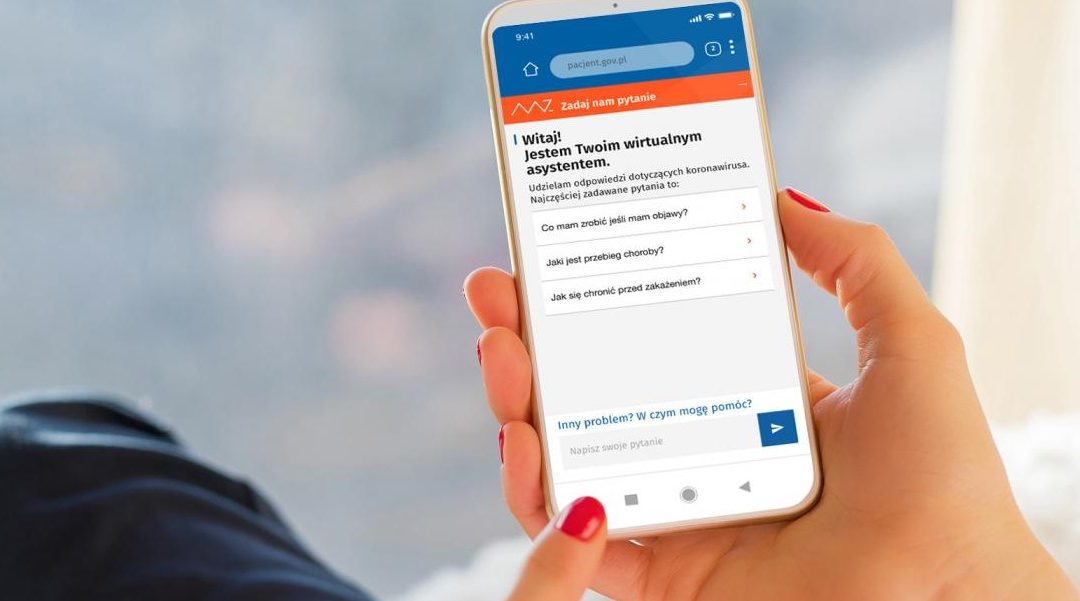The Polish health ministry has teamed up with IBM to launch an online virtual assistant that can provide answers to frequently asked questions about the coronavirus. Meanwhile, the Catholic church has also opened a new helpline to assist with people’s spiritual needs during the epidemic.
The assistant, which is available at pacjent.gov.pl, can field queries on infection, symptoms, quarantine, treatment, restrictions on movement, procedures in case of illness or suspected illness, and any legal rulings which have come into force in response to the epidemic. So far, it has been handling several thousand queries a day.
The service was launched in response to a “constantly growing number of queries about coronavirus”, said Janusz Cieszyński, a deputy health minister. “It provides answers in just a few seconds at any time of day or night and is very intuitive to use.”
#Koronawirus – wirtualny asystent odpowie na najważniejsze pytania #wieszwięcej #koronawiruspolska https://t.co/DFeQ9x4DIS
— portal tvp.info ?? (@tvp_info) March 25, 2020
According to Wprost, a news weekly, the software was created in only a few days, and is updated every day with the latest information from the health ministry, the Chief Sanitary Inspectorate and the National Health Fund. It is the first time such a tool has been implemented in the Polish public healthcare system.
The assistant, which was created in cooperation with IBM using its Watson Assistant artificial intelligence technology, is based on an algorithm that uses machine learning techniques, including neural networks and reference databases, reports the Rzeczpospolita daily.
It works on the most popular browsers, including Firefox, Chrome, Microsoft Edge, Internet Explorer and Safari, and can also be used on mobile devices.
The assistant pops up automatically on the government website, and tells users it can respond most successfully to short, individual questions. The most frequently asked questions are: “What should I do if I have symptoms?”, “What is the progression of the disease?”, and “How to protect yourself from infection?”
If the assistant cannot provide advice, it will direct users to relevant institutions and websites. However, according to a report by Puls Medycyny, a medical news portal, the software is not always reliable. The website posed questions to the assistant, but some of the information provided in response was out of date.
The health ministry is encouraging Poles to use other virtual support available, including e-prescriptions and e-referrals. The Ministry of Digital Affairs has also launched an app for people under compulsory home quarantine orders.
The “Home Quarantine” app allows them to confirm their location by sending geolocated selfies, thereby avoiding the need for police visits. It also provides additional information and support services for those in isolation. However, overwhelmingly negative online reviews suggest that the app, which was developed very quickly, is still not functioning effectively.
Meanwhile, the Archdiocese of Poznań today launched a new information line manned by its priests, allowing the faithful access to spiritual guidance without leaving their homes.
Under emergency measures introduced by the government earlier this week, religious services can have a maximum of five attendees. Even before that, when public gatherings were limited to 50 people, many churches had suspended masses while the episcopate advised Catholics to participate through television and internet broadcasts.
As a result, the church has been inundated with questions about services and spiritual support, said Maciej Szczepaniak, spokesman for the Metropolitan Curia in Poznań. The new phone line is a response to that demand, he told Polskie Radio.
“Questions arise about the sacrament of penance, holy communion, experiencing mass online, home liturgy, and preparing for Easter,” said Krystian Sammler, coordinator of the service, quoted by TVP Info. “Some are just in need of spiritual conversation and empowerment.”
Main image credit: pacjent.gov.pl

Juliette Bretan is a freelance journalist covering Polish and Eastern European current affairs and culture. Her work has featured on the BBC World Service, and in CityMetric, The Independent, Ozy, New Eastern Europe and Culture.pl.




















